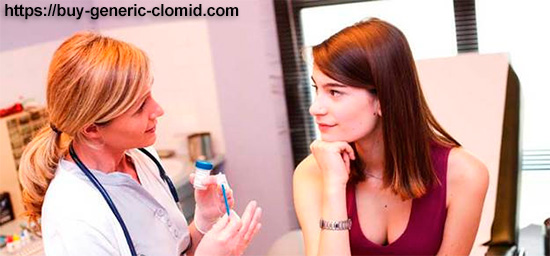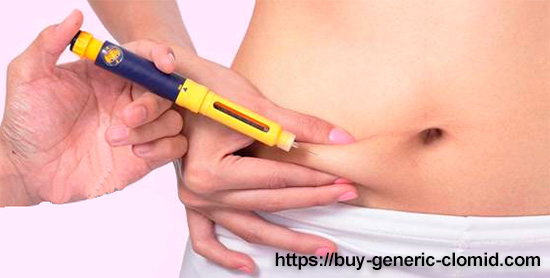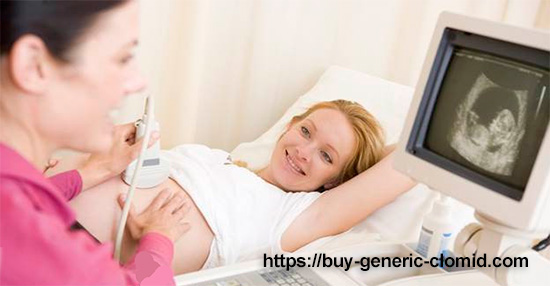Ovulation is the natural process of an egg entering the fallopian tube after a Mature follicle is ruptured. Usually occurs 14 days before the start of menstruation. For a number of reasons, the egg may not be released from the follicle. In this case, artificial ovulation stimulation is required.Specialists of the IVF reproductive health clinic use dozens of techniques aimed at maturing the follicle and releasing the egg into the fallopian tube. Doctors prescribe medications (“Clomid“, “Didrogesterone”, etc.), select a diet, eliminate hormonal imbalances, give recommendations for lifestyle correction. As a result of complex therapy, a woman begins to ovulate, which is necessary for the conception of a child.
Features of the ovulatory phase
In healthy women, the rupture of the follicle with the subsequent release of the egg into the fallopian tube occurs without stimulation about 14 days before the onset of menstruation (with a 28-day cycle). Small deviations from the average are often observed and are considered the norm.

On the eve of ovulation, the ovarian follicle increases in size to 2 cm in diameter. At this point, the egg Matures in it. Under the influence of hormones, a gap appears in the follicle. Through it, the egg enters the oviduct (fallopian tube), and then – into the uterus, where fertilization occurs. The duration of the entire process does not exceed 48 hours. However, many women of reproductive age have disorders in the ovulation phase. This makes it difficult to conceive a child.
Indications for the procedure
Doctors of the IVF reproductive health clinic prescribe ovulation stimulation after laboratory and instrumental diagnostics. Therapy is indicated for women who have detected anovulation caused by:
- polycystic ovary;
- hyperandrogenism;
- resistant ovarian syndrome;
- hormonal disorders in diseases of the endocrine system;
- hypothalamic-pituitary dysfunction;
- pathologies of the reproductive system from prolonged use of contraceptives and hormonal agents.
Ovulation stimulation is indicated after undergoing a comprehensive diagnosis, which is aimed at detecting the cause of abnormalities in the menstrual cycle.
Preparing for the procedure
Before ovulation stimulation, it is necessary to undergo a clinical diagnosis. First of all, a woman is assigned to pass laboratory tests. These include:
- venous blood analysis for detection of antibodies to pathogens of syphilis, immunodeficiency virus, toxoplasmosis, chlamydia, cytomegalovirus, rubella;
- urine sampling for the diagnosis of trichomoniasis and vaginal candidiasis;
- vaginal smear to detect mycoplasmosis, Gardnerella, pathologically altered cells;
- urine analysis to determine the indicators of prolactin, estrogen, and testosterone.

Also shown is the conducting of instrumental diagnosis of. Patients are referred to:
- General examination by a therapist;
- Examination by a gynecologist;
- ECG (under load and in a relaxed state);
- Ultrasound of the pelvic organs – this method helps to detect organic pathologies, malignant and benign tumors;
- X-ray of the fallopian tubes-necessary for the diagnosis of obstruction;
- Folliculometry – this method of ultrasound allows you to track the growth and development of follicles in dynamics.
Doctors of the IVF reproductive health clinic select treatment individually depending on the causes that caused the abnormal course of the menstrual cycle.
What is ovulation induction?
This is a procedure in which specialists artificially stimulate the maturation of eggs. During induction, both one and several cells can develop in the follicles of a woman. Such treatment should be performed with IVF or insemination. The more Mature eggs a reproductologist extracts from a woman’s ovaries, the higher the chance of a successful outcome of in vitro fertilization. Induction can be performed with medication.
Methods of artificial stimulation
In medical practice, there are many ways to speed up the process of maturation of the egg and follicle. Particularly effective are:
- drug therapy-involves the appointment of drugs that normalize the production of female hormones, restoring the menstrual cycle;
- diet-nutrition correction helps restore metabolic processes, increase the body’s support forces;
- vitamin therapy-aimed at eliminating the deficiency of vitamins (A, D, C, E, etc.), as well as macro – and microelements (iron, zinc, calcium, phosphorus).
Stimulating the ovulation process in several ways increases the chances of restoring the menstrual cycle and further conception of a child.
Medication
When detecting pathologies in the maturation of follicles and eggs, specialists use drugs to stimulate ovulation. Funds are selected based on the patient’s age and weight, as well as the cause of the violation. In addition, the choice of a specific drug depends on the further method of fertilization of the egg (natural, IVF, ICSI, IMSI, etc.).
Medication prescribed to stimulate ovulation does not give results immediately. Only 15% manage to get pregnant after a short course of medication. Specialists of the IVF clinic psychologically prepare women and introduce them to statistics in order to reduce stress in the event of a failed attempt.
Nutrition for successful ovulation
Food is the main source of nutrients, macro-and microelements. The diet significantly affects the menstrual cycle and the ability to conceive. Women who consume a lot of fat and carbohydrates can suffer from overweight, high cholesterol, and diabetes. Such diseases negatively affect the work of the reproductive system. Lack of body weight is also dangerous – the body reduces the concentration of female hormones (estrogen, progesterone, prolactin, etc.).

Specialists prescribe proper nutrition to stimulate ovulation, recommending that the menu include:
- dairy products (cottage cheese, hard cheeses, milk);
- fruits / vegetables rich in fiber, trace elements and vitamins;
- the wheat germ;
- legumes (chickpeas, beans, peas);
- quail eggs;
- walnut;
- flax, sesame and pumpkin seeds;
- dates.
In the course of treatment, it is necessary to stop using alcohol and Smoking. Certain foods prescribed by the diet may cause alle.